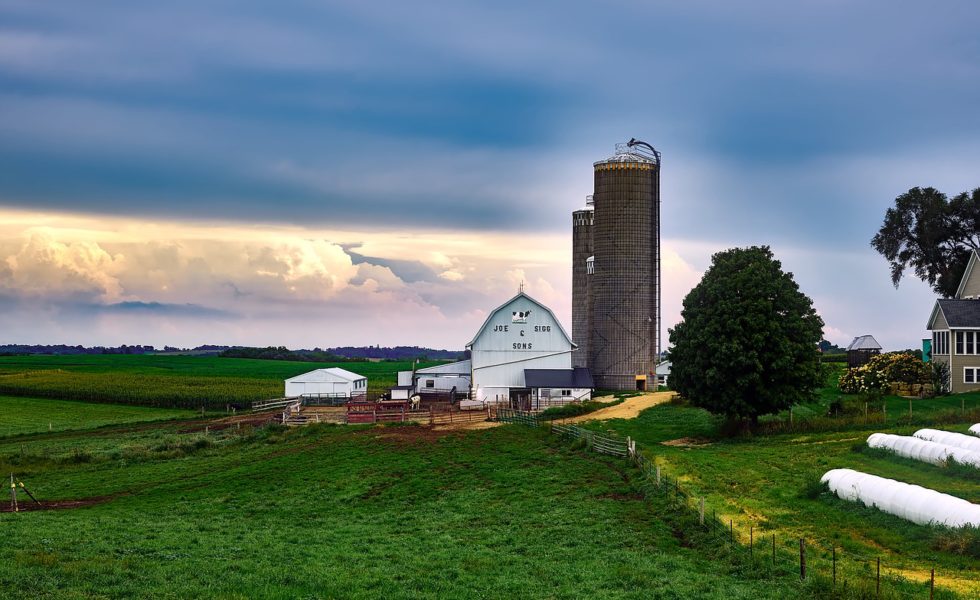There Goes the Neighborhood
Posted on April 26, 2017

Farmers and ranchers pride themselves on neighborliness, and rightly so. Rare is the season, after all, when the local newspaper or radio station doesn’t carry a lump-in-the-throat story explaining how neighbors of an ill or injured member of a farm or ranch family gathered for a day or two to do a month or two’s worth of planting or harvesting, rebuilding or hauling, vaccinating or milking, baling or feeding.
And that aided neighbor would do the same; in fact, probably already has. That’s how it works in rural America where folks are neighbors and neighbors are a community.
A generation or so ago, it worked that way with farm, ranch, and commodity groups, too. Most preached unity, the need for all to join together so that all—you, me, our neighbors, our community, our nation—moved forward together. No one got ahead unless we all got ahead.
That culture of togetherness, however, hasn’t aged well in the age Big Ag and Big Agbiz. American farm and ranch groups, like urban and political America, are now less social and more tribal. Many tightly grip a “we’re-right, you’re-wrong” view of farm and food technology, policy, and their customers.
Some groups, like National Pork Producers Council (NPPC), have gone so far as to separate themselves from rural America and move their national headquarters to Washington, D.C.
Others have moved from representing the middle-ground consensus of their farmers, ranchers, and neighbors to advocating for individual “production links” in the “supply chain.”
For example, reported DTN, on March 24 “(m)ajor livestock and meatpacker groups,” asked the U.S. Department of Agriculture “to withdraw proposed rule changes”—called the Farmer Fair Practice rules—“to the Packers and Stockyards Act.”
One of the rules these groups asked USDA to kill “… would ensure packers cannot retaliate against producers who show their contracts to legal counsel.”
Why would any livestock group oppose a sensible, necessary rule that allows American cattle and hog growers to “show their [meatpacker] contracts to legal counsel” without fear of retaliation?
Leaders of the groups, “the NCBA [National Cattlemen’s Beef Association] and the NPPC,” explained DTN, said the rules would lead to meatpackers paying one price for all U.S. cattle.
That’s an absurd and ridiculous claim with no factual basis—other than a study NPPC and NCBA bought and paid for—that went unchallenged by other commodity groups, unanswered by USDA, and uncommented on by any member of Congressional ag committees.
Roger Johnson, president of National Farmers Union, however, supported the Farmer Fair Practice rules and labeled today’s opaque, contract-dominated poultry, cattle, and hog sectors a “system of indentured servitude…”
Just a few days earlier, the biggest farm group in the U.S., the American Farm Bureau Federation (AFBF), quietly endorsed a House of Representatives’ plan to repeal the Affordable Care Act (ACA), or Obamacare.
In the brief press release announcing its support for repeal, AFBF offered neither a replacement plan for the millions of Americans—many in rural America—who would lose insurance coverage under the repeal nor any suggestion to improve the ACA if it remained.
Moreover, the AFBF announcement didn’t mention that several of its state affiliates own and operate regional, rural-focused insurance companies who might benefit, some handsomely, if the entire ACA was repealed and no federal replacement took its place.
After receiving the AFBF announcement the day before the scheduled, then cancelled, March 23 House vote, one Capitol Hill observer forwarded it with the note, “AFBF to Rural America: drop dead.”
Hyperbole aside, the quip stings because of it hits too close to home. There was a time when what was good for rural America was good for farmers and farm groups. We’ve now flipped that to read: What’s good for farm groups might be good for farmers and rural America.
That change, subtle as it seems, seems to change everything. Many farm and commodity groups are often viewed as anti-customer, anti-environment, and anti-neighbor bottom-line grubbers. Are they?
Ask your neighbor.
© 2017 ag comm
Category: Big Ag, From the Column, Life on the Farm, Rural America, Special Interests Tagged: DTN, Farm Bureau, lobbying, National Farmers Union, NCBA, NPPC, USDA
Share This